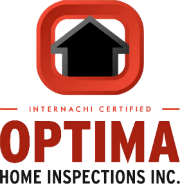Buying a home is a significant investment, and ensuring it’s a wise one can be a daunting task. This is where Hudson Valley home inspections come into play. In this blog, we’ll explore why these inspections are crucial for ensuring peace of mind when purchasing a home in this picturesque region.
Understanding the Importance of Home Inspections
Home inspections provide a detailed analysis of a property’s condition, highlighting potential issues that may not be visible to the untrained eye. An inspector evaluates everything from structural integrity to plumbing and electrical systems. This crucial step can save you from future headaches. Imagine moving into a new home only to discover the roof leaks or the foundation is unstable. With a home inspection, you can confidently move forward in your real estate journey, knowing you’ve made a well-informed decision. Learn more about home inspection processes to ensure you understand each component of this vital service.
Beyond the basics, home inspections can also reveal more subtle problems such as inadequate insulation, faulty wiring, or issues that could affect the overall energy efficiency of the home. This insight is particularly valuable as energy costs continue to rise. By addressing these issues early, you can budget for necessary improvements or negotiate with the seller to cover some of the repair costs. The peace of mind knowing you aren’t entering a money pit is incredibly valuable, allowing you to focus on creating a home rather than constant repairs.
Unique Challenges in the Hudson Valley
The Hudson Valley, with its charming historic homes and varied architecture, presents unique challenges for home inspections. Aging structures and region-specific issues like flooding and dampness require a keen eye for detail. Historic homes have character and beauty but can also hide some distress due to their age. For instance, older plumbing and electrical systems may not meet today’s safety standards, posing risks that are crucial to address. A specialized inspection focuses on these aspects, ensuring that safety and functionality are preserved alongside the home’s charm.
Another significant factor in the Hudson Valley is the region’s climate. The area experiences all four seasons, with cold winters and humid summers that can impact building materials and structures. Moisture intrusion is a frequent concern, especially in older homes where water can seep into basements, potentially leading to mold growth. An experienced inspector understands these local conditions and knows what to look for. Tips for inspecting historic homes can guide you in understanding what your inspection report might highlight.
Furthermore, properties in the Hudson Valley often come with substantial land, which requires a thorough inspection beyond the building itself. Issues like soil stability, drainage, and proper septic functioning are as vital as the integrity of the home. Inspectors with knowledge of rural environments can evaluate such external factors, providing a comprehensive overview of potential challenges and necessary maintenance for the entire property, not just the house. Paying attention to these elements early on can prevent unexpected issues from arising after you’ve settled into your new home.
What to Expect During a Home Inspection
A typical home inspection covers the exterior, including the roof and foundation, as well as the interior, plumbing, and electrical systems. Many inspectors will also check for signs of pest infestations and test the HVAC systems. Expect the inspector to spend several hours thoroughly examining the property and taking notes. Each system and structure in the home is assessed for condition, whether it’s the roofing material’s lifespan or the effectiveness of gutters and downspouts in channeling water away from the house.
While the inspection primarily focuses on identifying existing issues, inspectors can oftentimes estimate the potential lifespan of major systems and advise on maintenance. This information is invaluable for budgeting future repairs or replacements, such as when you might need to replace a furnace or reseal the driveway. During this process, an inspector’s keen eye can spot problems that aren’t immediately apparent to the average homeowner, such as small but significant cracks in the foundation or loose siding that can lead to greater structural issues if left unattended.
Another aspect of home inspections is attention to safety hazards. Inspectors might reveal dangerous conditions like exposed wiring or insufficient smoke detectors, both of which can pose immediate threats to the household’s safety. Understanding common safety concerns in homes can help you better interpret your report and prioritize necessary repairs. Having an inspection allows you to address these safety problems before moving in, making your new home a secure environment from day one.
Choosing the Right Home Inspector
Selecting a qualified and experienced home inspector is crucial. Look for professionals with certifications, good reviews, and a detailed inspection process to ensure you’re getting a comprehensive evaluation of the property. Certifications from reputable organizations indicate a certain standard of training and expertise, providing reassurance that the inspector follows tested procedures and maintains industry knowledge. It’s wise to interview potential inspectors; discuss their experience, and ask them about their process and inspection checklist to ensure their services meet your needs.
Local expertise is also an important factor. Choose an inspector who is familiar with the Hudson Valley area and its specific challenges. They should understand the common construction practices used in local homes and be able to identify issues caused by the region’s distinct climate. Getting referrals from real estate agents or neighbors can lead to finding a trusted inspector who has a good reputation in the community. Ultimately, hiring the right professional can save you time and money in the long run by providing a reliable assessment of your potential new home.
Interpreting the Inspection Report
The inspection report is a comprehensive summary of the home’s condition. Understanding the findings and potential repair costs can help you negotiate with the seller or plan for future maintenance. The report often includes photographs and notes on each significant finding, ranging from minor cosmetic damage to critical structural issues. Review it carefully along with a guide to understanding home inspection reports, allowing you to identify which issues are priorities and require immediate attention.
Don’t hesitate to follow up with your inspector if there are any parts of the report that you don’t understand. They can offer further explanations or clarify technical jargon. This understanding can empower you to approach negotiations with the seller confidently, possibly requesting repairs or an adjustment in the sale price. Furthermore, knowing the critical aspects of the report enables you to plan for post-purchase improvements and ongoing maintenance more strategically, ultimately helping to protect your investment and ensuring the longevity of your home.
The Key to a Confident Home Purchase
In conclusion, Hudson Valley home inspections offer invaluable insights that can protect your investment and provide peace of mind. Ensuring that your dream home is safe, sound, and free from unexpected expenses makes the process worthwhile. So, don’t skip this essential step in the home-buying journey.


